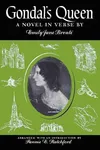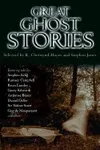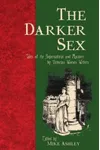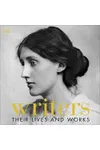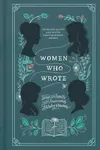Picture a windswept moor where passion and mystery collide—meet Emily Brontë, the reclusive genius behind Wuthering Heights! Born in 1818 in Yorkshire, England, this enigmatic author crafted a single novel that shook the literary world with its raw emotion and gothic intensity. Though her life was brief, Emily’s haunting prose and vivid poetry continue to captivate readers, proving that one masterpiece can echo through the ages.
Emily Brontë’s story is as intriguing as her work. A shy, fiercely private woman, she spun tales of untamed love and vengeance from the quiet of her family’s parsonage. Let’s dive into her world, from her secluded upbringing to her enduring legacy in literature.
The Making of Emily Brontë
Emily Jane Brontë was born on July 30, 1818, in Thornton, Yorkshire, the fifth of six children in a clergyman’s family. Raised in the isolated village of Haworth, she grew up surrounded by the stark beauty of the moors, which would later inspire the wild setting of Wuthering Heights. After losing her mother and two sisters early, Emily found solace in books and the imaginary worlds she created with her siblings, Charlotte, Anne, and Branwell. These childhood stories, scribbled in tiny notebooks, hinted at her vivid imagination. Though she briefly attended school and worked as a governess, Emily preferred the solitude of home, where she honed her craft in secret, fueled by Romantic poets like Byron and Shelley.
Emily Brontë’s Unforgettable Works
Emily’s literary output was small but mighty. Her only novel, Wuthering Heights (1847), published under the pseudonym Ellis Bell, is a tempestuous tale of love and revenge between Heathcliff and Catherine Earnshaw. Its nonlinear narrative, brooding characters, and raw passion defied Victorian norms, earning both criticism and awe for its bold originality. Critics initially found its intensity shocking, but today, it’s a cornerstone of English literature, celebrated for its psychological depth and gothic atmosphere.
Beyond her novel, Emily was a gifted poet. Her verses, often published alongside her sisters’ in Poems by Currer, Ellis, and Acton Bell (1846), explore themes of nature, solitude, and the mystical. Standouts like “No Coward Soul Is Mine” reveal her fierce spirit and philosophical depth. Though her poetry was less known in her lifetime, it’s now cherished for its lyrical power and emotional resonance.
Emily’s style is unmistakable: vivid, untamed, and deeply emotional. She wove the rugged Yorkshire landscape into her work, making the moors a character in itself. Her characters, flawed and passionate, grapple with love, betrayal, and fate, inviting readers to ponder the complexities of the human heart.
Why Emily Brontë Matters
Emily Brontë’s impact is monumental despite her slim oeuvre. Wuthering Heights redefined the novel, blending gothic romance with psychological realism and influencing countless authors, from the Brontës’ contemporaries to modern writers. Its themes of love, class, and vengeance remain timeless, inspiring adaptations in film, theater, and music, including Kate Bush’s iconic 1978 song. Emily’s reclusive nature only adds to her mystique, making her a literary legend whose voice resonates across centuries.
Her work also challenged gender norms. Writing as Ellis Bell, Emily defied expectations of what a woman could create, crafting a novel that was fiercely unconventional. Her legacy endures in classrooms, book clubs, and hearts worldwide, proving that a single story can leave an indelible mark.
About Emily Brontë
- Born: July 30, 1818, in Thornton, Yorkshire, England
- Key Work: Wuthering Heights (1847)
- Other Works: Poems by Currer, Ellis, and Acton Bell (1846)
- Died: December 19, 1848, at age 30
Ready to lose yourself in a stormy romance? Grab Wuthering Heights and step into Emily Brontë’s wild, unforgettable world!

